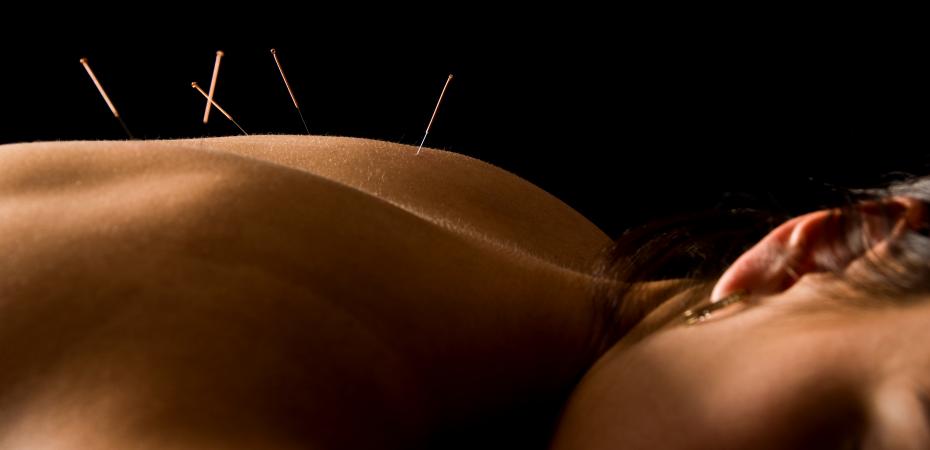
What is acupuncture?
The National Center for Complementary and Integrative Health (NCCIH) categorizes acupuncture as part of an alternative medical system, traditional Chinese medicine (TCM). According to TCM theory, meridians of energy exist throughout the human body that channel energy, or qi (pronounced chee). Illness is often represented by symptoms related to either a deficiency or an excess of certain naturally occurring processes such as qi. TCM theory suggests acupuncture modulates qi by using needle manipulation to alter its flow, thus allowing the body to be healed. Acupuncturists commonly increase the effect of the treatment by manual stimulation of the needle - rotating the needle or lifting it up and down. Further stimulation of the needle can also be achieved by running a low electrical current between two needles, this technique is referred to as electro-acupuncture. A growing number of studies in recent years have shown the beneficial effects of acupuncture in helping with symptoms related to cancer and treatment side effects, such as pain and nausea with preliminary data showing promising results for the treatment of hot flashes, xerostomia, aromatase induced-arthralgias.
What research on acupuncture is being conducted at CCIO?
Acupuncture for Chemotherapy Induced Peripheral Neuropathy
Case Center for Integrative Oncology will launch a pilot study to evaluate the use of acupuncture for chronic, taxane- and platinum-induced peripheral neuropathy in cancer survivors. Specifically, the study will examine the total dose of acupuncture treatment and investigate whether electrical stimulation - sending an electrical current between two acupuncture needles - will improve the efficacy of treatment. Total enrollment for this study will be 20 participants. The results of the proposed study will inform the design of a larger randomized placebo-controlled trial to determine conclusively the effect of acupuncture in patients with chemotherapy-induced peripheral neuropathy.
Contact
Please email ccio@case.edu for more information about this study.

